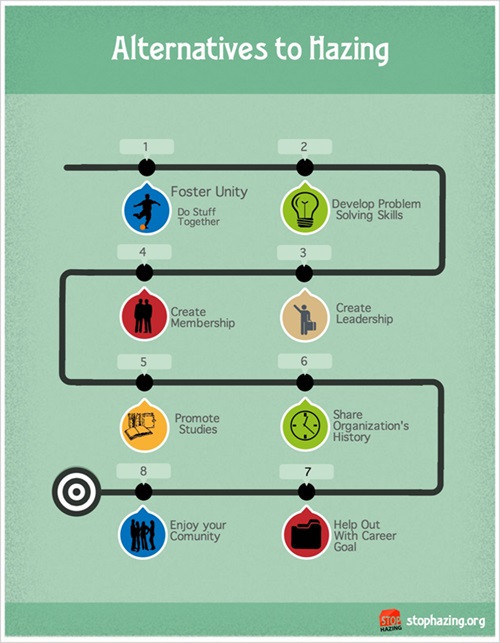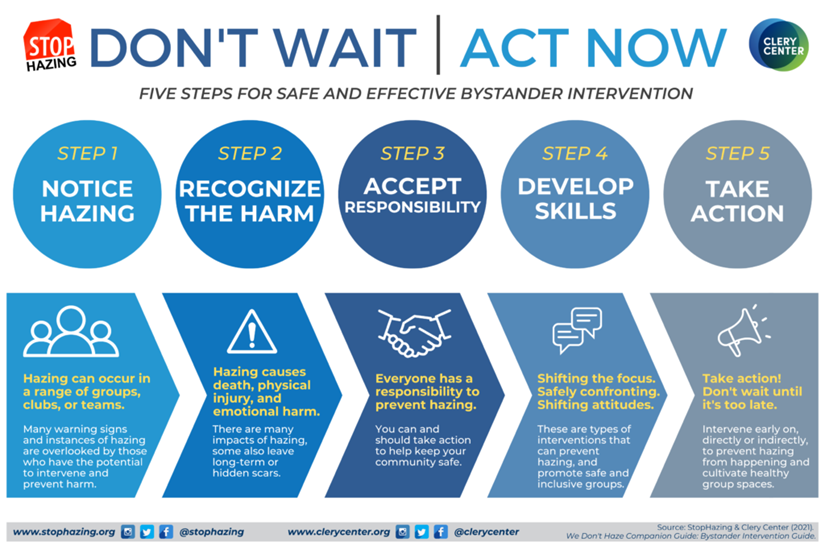Hazing Violations:
There have been no findings of responsibility for hazing violations from June 24, 2025 to December 15, 2025.
There have been no findings of responsibility for hazing violations from December 15, 2025 to present.
There have been no findings of responsibility for hazing violations from June 24, 2025 to December 15, 2025.
There have been no findings of responsibility for hazing violations from December 15, 2025 to present.
Hazing is any intentional, knowing, or reckless act committed by a person (whether individually or in concert with other persons) against another person or persons, regardless of the willingness of such other person or persons to participate, that:
Source: The Jeanne Clery Campus Safety Act, 20 U.S.C § 1092(f) (2024)
Hazing is any action taken or situation created, whether on or off campus, intentionally inflicted on a student or students for the purpose of an initiation into a Student Organization recognized, established, or sponsored by the University that creates mental or physical harm, including temporary or permanent diminished physical or mental capacity, emotional distress, humiliation, degradation, or causing or encouraging another person to violate any law or University policy.
Hazing includes any mental or physical requirement, request, or obligation which emphasizes one individual’s or a group’s power over others and/or a perceived necessity/obligation to participate; that could cause pain, disgrace, or injury; that is personally degrading; and/or that violates federal, state, or local law, or University policy.
Source: UMB Hazing Policy
A student organization is defined as “an organization at an institution of higher education (such as a club, society, association, varsity or junior varsity athletic team, club sports team, fraternity, sorority, band, or student government) in which two or more of the members are students enrolled at the institution of higher education, whether or not the organization is established or recognized by the institution."


214 N. Pine St.
Baltimore, MD 21201
Emergencies: 911
Non-Emergencies: 410-706-6882
Safe Walk/Safe Ride: 410-706-6882
TTD/TTY: 410-706-3416
The University of Maryland, Baltimore is the founding campus of the University System of Maryland.
620 W. Lexington St., Baltimore, MD
21201 | 410-706-3100
